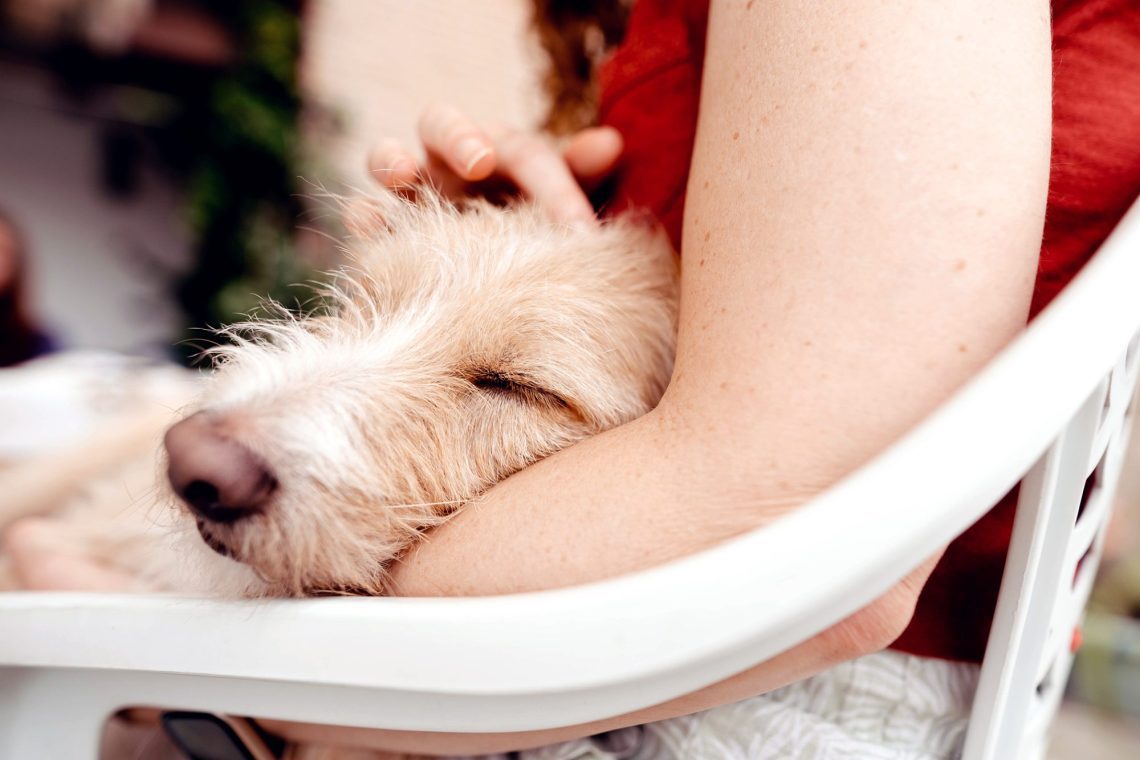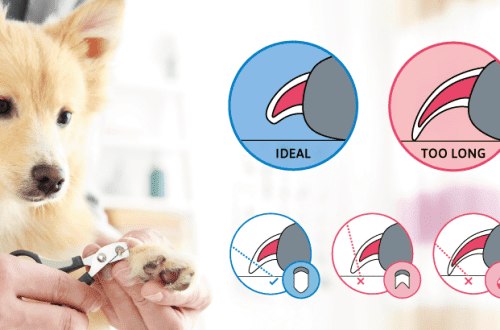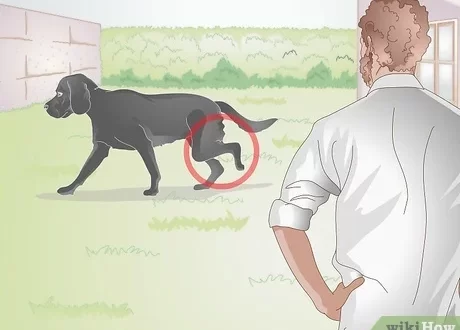
Should I be concerned if my dog is constantly twitching in his sleep?
Maybe the pet is just having interesting dreams? In reality, however, there may be several explanations for this. Most often, twitching is completely normal for dogs, but in some cases it can be associated with factors such as stress, old age, or health problems.
Below is all the information you need to know about twitching in dogs, including when to call your veterinarian.
Contents
Why do dogs twitch and whine in their sleep?
Twitching in dogs is an involuntary muscle spasm that occurs spontaneously, proceeds quickly, and can appear in almost any part of the body. Usually it is observed in dogs in the hind legs, most often during sleep.
Common causes of twitching in pets include:
Dreams.
Growth related development.
anxiety disorders.
External stimuli, such as fireworks, thunderstorms, or the company of strangers.
Health problems such as epilepsy or diabetes.
Rigidity (stiffness) of the muscles.
Arthritis.
According to Labrador Training HQ, twitching in dogs can be caused by certain toxins, such as chocolate or laundry detergent. In addition, it may be due to the age of the animal. According to PetHelpful, puppies, especially newborns, often twitch as part of their “normal developmental process.” Puppies see much more dreams than adult dogs, because in their body there are processes of tuning the work of muscles and brain activity.
The dog twitches violently in his sleep: how soundly does he sleep
If your pet twitches while sleeping, this is a good indicator that he is sound asleep. Dogs have the same sleep phases as humans, including short-wave sleep and REM sleep. You can often see that in a dream a dog kicks the air, as it were.

On average, dogs sleep 12 to 14 hours a day. During sleep, dogs often twitch their tail or their whole body and may even bark – this is quite normal. We can assume that this is how the dog communicates in a dream.
According to Tufts University, pets may twitch in their sleep if they are having nightmares. University experts do not advise waking the dog in such situations, except when the animal is obviously suffering. If you still need to wake your pet, it is better to call him softly by name until he wakes up. Do not touch a dog that is having nightmares because it can bite.
Does a dog twitch its paws when awake?
A pet may experience rapid muscle spasms both during sleep and while awake. Periodic twitches are normal and should not be a cause for concern, especially if the dog is older. Annoyances related to the environment or setting, such as a thunderstorm or strangers in the house, can also cause a pet to twitch. If the twitching stops when the stimulus disappears, it is likely that the dog was really just reacting to the situation.
Some dogs, like humans, can twitch when they are nervous or anxious about separation. If the dog is generally anxious, it may also twitch or tremble. Your veterinarian will tell you how to help your pet cope better with this condition and provide him with the necessary comfort.
When to Call Your Veterinarian
If your dog experiences tremors throughout his body that last longer than a brief spasm or result in muscle stiffness, he may be having a seizure. In such cases, you should immediately call a veterinary ambulance. Other symptoms of a seizure:
Vomiting.
Foam from the mouth.
Involuntary act of defecation.
Involuntary act of urination.
Before the seizure, the dog may appear agitated or restless. During a seizure, a dog’s eyes may be wide open, whether the dog is asleep or awake. She has a frightened expression on her face, like a deer in headlights. After a seizure, dogs often look confused or numb, writes Pads and Paws. In addition, it is important to understand that seizures do not always go according to the standard scenario. Sometimes they may present with focal tics or tremors. To determine whether a dog is having a seizure or a normal muscle twitching, other symptoms of seizure activity, including the behavioral changes described above, must also be observed. Any suspicion of seizure activity should immediately seek the advice of a veterinarian.
Severe and prolonged twitches can be a symptom of diabetes, hypothermia, kidney and liver problems, or poisoning, writes veterinarian Justin A. Lee for the Pet Health Network, all of which require veterinary treatment. Toxins that often cause poisoning in dogs include rodent poisons, drugs, and human food that is harmful to pets. If poisoning is suspected, a veterinary ambulance should be called immediately.
Most often, a four-legged friend twitches in a dream, because he sees a pleasant dream. However, in case of any doubt, it is better to play it safe and call the veterinarian.





